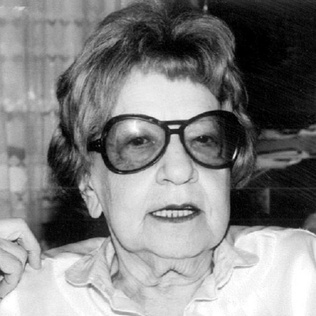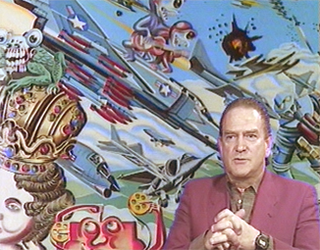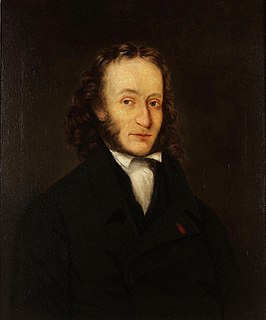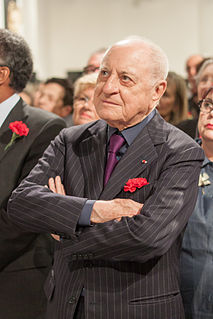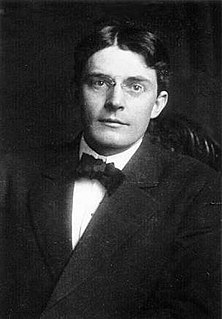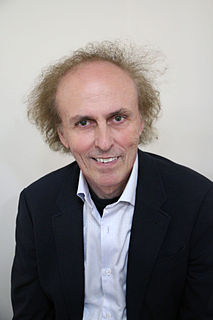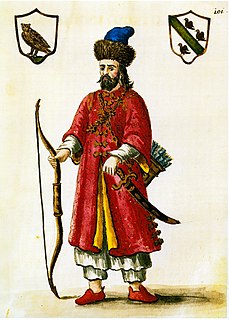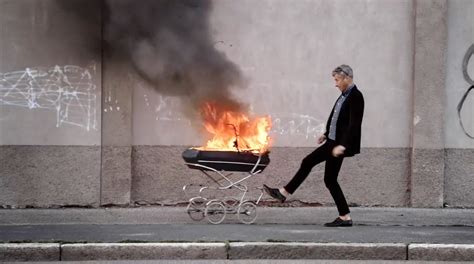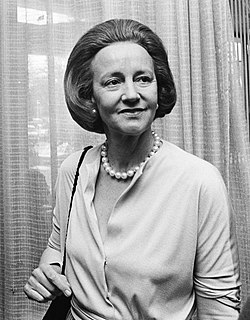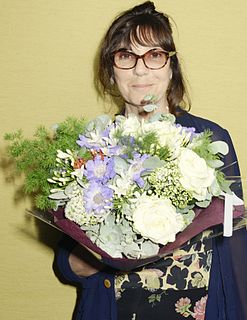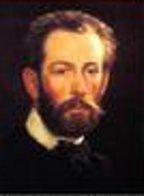Top 416 Merchant Of Venice Quotes & Sayings - Page 7
Explore popular Merchant Of Venice quotes.
Last updated on April 15, 2025.
Solely in the world of languages is the amateur of value. Well-intentioned sentences full of mistakes can still build bridges between people. Asking in broken Italian which train we are supposed to board at the Venice railway station is far from useless. Indeed, it is better to do that than to remain uncertain and silent and end up back in Budapest rather than in Milan.
In the '80s, the world I was living in wasn't this world of consumption. There wasn't that much to buy, really. Actually I'm still struck by that. There's not an awful lot of stuff I want. Somebody quotes Diogenes, who's walking around saying, "How many things there are in the marketplace of which Diogenes has no need." I always feel that. Except of course when you're living in Venice, California and you see all these lovely houses!
As Day and other observers had reported, the slaves were leading very comfortable lives. After this tactic [slave rebellions in the South] failed, it became obvious to the conspirators that an actual military invasion was the only solution to their campaign. The merchant bankers of New England, who were directly controlled by the Rothschilds, were no instructed to finance a military attack against the South. Their instrumentality was the already well-known terrorist, John Brown. He was financed by a group famed as "the Secret Six".
The collages I never wanted to sell. I thought it was a very private thing, so I kept the collages. Then, in the end, I had a big collage in the Pinault Collection in Venice and the director of the [Centre] Pompidou said, "Did you make big collages like this in the '60s?" I said yes, so he came to the studio and said, "Let's make an exhibition in the Pompidou."
Venice is ever the fragile labyrinth at the edge of the sea and it reminds us how brief and perilous the journeys of our lives are; perhaps that is why we love it so. City of plagues and brief liaisons, city of lingering deaths and incendiary loves, city of chimeras, nightmares, pigeons, bells. You are the only city in the world whose dialect has a word for the shimmer of canal water reflected on the ceiling of a room.
I intend Deaths in Venice to contribute both to literary criticism and to philosophy. But it's not "strict philosophy" in the sense of arguing for specific theses. As I remark, there's a style of philosophy - present in writers from Plato to Rawls - that invites readers to consider a certain class of phenomena in a new way. In the book, I associate this, in particular, with my good friend, the eminent philosopher of science, Nancy Cartwright, who practices it extremely skilfully.
On December 12, 1829, Paganini wrote his friend Germi: "The variations I've composed on the graceful Neapolitan ditty, 'Oh Mamma, Mama Cara,' outshine everything. I can't describe it!" He was writing from Karlsruhe, in the midst of his triumphal tour through Germany. That letter marks the earliest known mention of the variations that would become famous as "The Carnival of Venice." At the time of his letter, Paganini had already performed the piece in at least four concerts. From then on, it would be one of his most popular compositions.
We survived for hundreds of years under the old banking structure. You'd have clearing banks, then merchant banks doing the racy stuff, and then building societies where you'd join a waiting list for a mortgage. But then banks started buying stockbrokers, doing mortgages, and you ended up with these big banking groups doing everything.
There was an exchange between me and Andy Warhol. We met, we liked each other, we appreciated each other. He would come to us for Easter in Marrakech. In September we would meet up in Venice. And every time I went to New York I would spend some time with him at the Factory, where we would have dinner together. He's a man that I admired deeply. He shook up the notion of painting - not as much as Marcel Duchamp had done, but he was part of the same general movement. And then we both admired art deco.
It may be true that people who are merely mathematicians have certain specific shortcomings; however that is not the fault of mathematics, but is true of every exclusive occupation. Likewise a mere linguist, a mere jurist, a mere soldier, a mere merchant, and so forth. One could add such idle chatter that when a certain exclusive occupation is often connected with certain specific shortcomings, it is on the other hand always free of certain other shortcomings.
Presenting Aschenbach as a composer - based on Mahler - leads to some dreadful scenes (especially those in which Aschenbach is berated by his student), and it surely distorts the character Mann created. Yet, we know that Mann's novella was based on a holiday in Venice he took with his wife and brother, and that while he was there he followed the reports in the German newspapers, describing the dying Mahler's progress as he returned from New York to Vienna.
Our large trading cities bear to me very nearly the aspect of monastic establishments in which the roar of the mill-wheel and the crane takes the place of other devotional music, and in which the worship of Mammon and Moloch is conducted with a tender reverence and an exact propriety; the merchant rising to his Mammon matins, with the self-denial of an anchorite, and expiating the frivolities into which he maybe beguiled in the course of the day by late attendance at Mammon vespers.
I sat up and the blankets fell away.I looked down and found I was wearing pokemon pajamas. "Sadie,"I said,"I'm going to kill you." She batted her eyes innocently."But the street merchant gave us a very good deal on those.Walt said they would fit you." Walt raised his hand."Don't blame me,man.I tried to stick up for you." Bes snorted,then did a pretty good imitation of Walt's voice:"At least get the extra-large ones with Pikachu.
With regard to the learned professions, little need be observed; they truly form no distinct interest in society . . . [discussing the landed, merchant, and learned classes in legislative assembly]. Will not the man of the learned profession, who will feel a neutrality to the rivalships between the different branches of industry, be likely to prove an impartial arbiter between them, ready to promote either, so far as it shall appear to him conducive to the general interests of society?
Part of my methodological approach is made explicit when I discuss ways in which literature can have philosophical significance. Literature doesn't typically argue - and when it does, it's deadly dull. But literature can supply the frame within which we come to observe and reason, or it can change our frame in highly significant ways. That's one of the achievements I'd claim for Mann, and for Death in Venice.
Give me a dozen healthy infants, well-formed, and my own specified world to bring them up in and I'll guarantee to take any one at random and train him to become any type of specialist I might select - doctor, lawyer, artist, merchant-chief and, yes, even beggar-man and thief, regardless of his talents, penchants, tendencies, abilities, vocations, and race of his ancestors.
I have no idea what a high school party looks like. I was just with my friend, and we were walking down Venice and there was this gathering of people playing Bongo drums, and so after dinner we sat down with them and played Bongo drums for a while. That's the closest thing I've gotten to a high school experience, meeting strangers and just hanging out with them.
A German merchant of the fifteenth century asked an eminent professor where he should send his son for a good business education. The professor responded that German universities would be sufficient to teach the boy addition and subtraction but he would have to go to Italy to learn multiplication and division. Before you smile indulgently, try multiplying or even just adding the Roman numerals CCLXIV, MDCCCIX, DCL, and MLXXXI without first translating them.
By multiplying the means of gratification, by promoting the introduction and circulation of the precious metals, those darling objects of human avarice and enterprise, it serves to vivify and invigorate the channels of industry, and to make them flow with greater activity and copiousness. The assiduous merchant, the laborious husbandman, the active mechanic, and the industrious manufacturer,-all orders of men, look forward with eager expectation and growing alacrity to this pleasing reward of their toils.
I was shooting on The Mindy Project while I was editing Alex of Venice, which was the stupidest thing I could've done. It was like having two full-time jobs. But in editing some characters were dropped, some storylines were dropped. It just starts dictating what it's supposed to be.It's scary, but fun to try to be brave and to "kill your darlings." To get rid of the stuff that you were like, "Oh, I'll never get rid of that. I love that. As long of a take as it is, I'm gonna keep that in."
Dearest Charles-- I found a box of this paper at the back of a bureau so I must write to you as I am mourning for my lost innocence. It never looked like living. The doctors despaired of it from the start... I am never quite alone. Members of my family keep turning up and collecting luggage and going away again, but the white raspberries are ripe. I have a good mind not to take Aloysius to Venice. I don't want him to meet a lot of horrid Italian bears and pick up bad habits. Love or what you will. S.
Decade after decade, artists came to paint the light of Provincetown, and comparisons were made to the lagoons of Venice and the marshes of Holland, but then the summer ended and most of the painters left, and the long dingy undergarment of the gray New England winter, gray as the spirit of my mood, came down to visit.
New England is a finished place. Its destiny is that of Florence or Venice, not Milan while the American empire careens onward toward its unpredicted end. . . . It is the first American section to be finished to achieve stability in the conditions of its life. It is the first old civilization, the first permanent civilization in America.
I believe it was God's will that we should come back, so that men might know the things that are in the world, since, as we have said in the first chapter of this book, no other man, Christian or Saracen, Mongol or pagan, has explored so much of the world as Messer Marco, son of Messer Niccolo Polo, great and noble citizen of the city of Venice.
What Mr. Muhammad says is, they should take their Navy and their - Merchant Fleet and ship us back where they got us.And that's not deportation, that's - returning stolen property to its proper owner.Now, since the government doesn't want to do that, then they - and they have already proven that they can't bring about peaceful relations on an integrated basis in this country, give us some separate territory in this country where our people can go and do something for ourselves. And provide us with everything that we need to keep that new territory going, until we are self-sufficient.
Every painter must traverse for himself that distance from Paris to Aix (where Paul Cézanne worked a lot, fh) or from Venice to Toledo (where El Greco painted a lot, fh). Expression is for one knowing its own pivot. Every expressor relates solely to himself - that is the concern of the individualist.
Let us consider the actual, worldly Jew - not the Sabbath Jew, as Bauer does, but the everyday Jew. ... What is the worldly religion of the Jew? Huckstering. What is his worldly God? Money. Money is the jealous god of Israel, in face of which no other god may exist. Money degrades all the gods of man - and turns them into commodities. The bill of exchange is the real god of the Jew. His god is only an illusory bill of exchange. The chimerical nationality of the Jew is the nationality of the merchant, of the man of money in general.
It is not surprising that only one medieval state, Venice, long possessed anything clearly identifiavble as a navy in this sense. We shall see that no state in the British Isles attained attained this level of sophistication before the 16th century, and no history of the Royal Navy, in any exact sense of the words, could legitimately begin much before then. This book, which does, is not an institutional history of the Royal Navy, but a history of naval warfare as an aspect of national history. All and any methods of fighting at sea, or using the sea for warlike purposes, are its concern.
Civilization is an active deposit which is formed by the combustion of the Present with the Past. Neither in countries without a Present nor in those without a Past is it to be encountered. Proust in Venice, Matisse's birdcages overlooking the flower market at Nice, Gide on the seventeenth-century quais of Toulon, Lorca in Granada, Picasso by Saint-Germain-des-Prés: there lies civilization and for me it can exist only under those liberal regimes in which the Present is alive and therefore capable of assimilating the Past.
I don't remember reading much at all during the writing of Eileen. I go through several years-long dry spells and I don't feel like reading at all. I was working part-time for a guy in Venice, California while I drafted Eileen. He wanted help in writing his memoir. The research had a lot to do with the 60s, so that must have informed my sense of the place and time in my novel, and perhaps even the memoir point-of-view. He was also from New England. It was a fun job. I learned a lot about motorcycle clubs, Charles Manson, hopping freight trains.
I'm criticizing the way they are perceived. I was going through a book of Marina Abramovic and Ulay's 1970s performance work the other day. These people did two, even three Documentas or Venice Biennales over the course of a decade without any fuss. They would just treat it as any of their other engagements, with the same level of dignity and commitment they'd reserve for a one-day event in a small gallery on the Austrian mountains.
Aubade THE lark now leaves his wat'ry nest, And climbing shakes his dewy wings. He takes this window for the East, And to implore your light he sings- Awake, awake! the morn will never rise Till she can dress her beauty at your eyes. The merchant bows unto the seaman's star, The ploughman from the sun his season takes, But still the lover wonders what they are Who look for day before his mistress wakes. Awake, awake! break thro' your veils of lawn! Then draw your curtains, and begin the dawn!
If any friend desire thee to be his surety, give him a part of what thou hast to spare; if he press thee further, he is not thy friend at all, for friendship rather chooseth harm to itself than offereth it. If thou be bound for a stranger, thou art a fool; if for a merchant, thou puttest thy estate to learn to swim.
The merchant must be no more pessimist than optimist, since pessimism induces him to hold back his capital but optimism induces him to take such risks that he has more to tear than to hope. Abu al'Fadl Ja'far al-Dimishqi (c. 9th century) Arab writer. The Beauties of Commerce Business pays ... philanthropy begs.
We danced our youth in a dreamed of city, Venice, paradise, proud and pretty, We lived for love and lust and beauty, Pleasure then our only duty. Floating them twixt heaven and Earth And drank on plenties blessed mirth We thought ourselves eternal then, Our glory sealed by God’s own pen. But paradise, we found is always frail, Against man’s fear will always fail.
My loving friend, you see, my life was never given a foundation, no one was able to imagine what it would want to become. In Venice there stands the so-called Ca del Duca, a princely foundation, on which later the most wretched tenement came to be built. With me it's the opposite: the beautiful arched elevations of my spirit rest on the most tentative beginning; a wooden scaffolding, a few boards....Is that why I feel inhibited in raising the nave, the tower to which the weight of the great bells is to be hoisted (by angels, who else could do it)?
For more than eight decades, Washington has been my hometown. ... It is a city that offers me more people -- more different kinds of people -- than I could otherwise possibly have come to know in a lifetime: the native Washingtonian, the local merchant, the foreign diplomat, the ever-present tourist, the public servant, the journalist, the president, the friend.
The statesman, lawyer, merchant, man of trade
Pants for the refuge of some rural shade,
Where all his long anxieties forgot
Amid the charms of a sequester'd spot,
Or recollected only to gild o'er
And add a smile to what was sweet before,
He may possess the joys he thinks he sees,
Lay his old age upon the lap of ease,
Improve the remnant of his wasted span.
And having lived a trifler, die a man.
I traveled for seven years, and when I came back home I was completely lost. I didn't know what to do with my life, so I decided to let people decide for me. For month I followed strangers on the street. For the pleasure of following, not because the party interested me. I photographed them without their knowledge, took note of their movements, and finally lost sight of them. At the end of January 1980, I chose a man and followed him to Venice. That's how I started. That's all.
I am firmly convinced, therefore, that to set up a republic which is to last a long time, the way to set about it is to constitute it as Sparta and Venice were constituted; to place it in a strong position, and so to fortify it that no one will dream of taking it by a sudden assault; and, on the other hand, not to make it so large as to appear formidable to its neighbors. It should in this way be able to enjoy its form of government for a long time. For war is made on a commonwealth for two reasons: to subjugate it, and for fear of being subjugated by it.
We sometimes fear to bring our troubles to God, because they must seem small to Him who sitteth on the circle of the earth. But if they are large enough to vex and endanger our welfare, they are large enough to touch His heart of love. For love does not measure by a merchant's scales, not with a surveyor's chain. It hath a delicacy... unknown in any handling of material substance.
There is no art or science that is too difficult for industry to attain to; it is the gift of tongues, and makes a man understood and valued in all countries, and by all nations; it is the philosopher's stone, that turns all metals, and even stones, into gold, and suffers not want to break into its dwelling; it is the northwest passage, that brings the merchant's ships as soon to him as he can desire: in a word, it conquers all enemies, and makes fortune itself pay contribution.
Give me a dozen healthy infants, well-formed, and my own specified world to bring them up and I'll guarantee to take any one at random and train him to become any type of specialist I might select-doctor, lawyer, merchant-chief, and yes, even beggar man and thief, regardless of his talents, penchants, tendencies, abilities, vocations, and race of his ancestors.
I do think hubris played a role here as well, the belief that the Lusitania was too big and too fast to ever be caught by any submarine, and that, in any case, no U-boat commander would think to attack the ship because to do so would violate the long-held rules governing naval warfare against merchant shipping.
I also want to raise the possibility that there are, in the very long term, "virtue effects" in economics- for instance that widespread corrupt accounting will eventually create bad long term consequences as a sort of obverse effect from the virtue-based boost double-entry book-keeping gave to the heyday of Venice. I suggest that when the financial scene starts reminding you of Sodomand Gomorrah, you should fear practical consequences even if you like to participate in what is going on.
I read somewhere that everybody on this planet is separated by only six other people. Six degrees of separation between us and everyone else on this planet. The President of the United States, a gondolier in Venice, just fill in the names. I find it extremely comforting that we're so close. I also find it like Chinese water torture, that we're so close because you have to find the right six people to make the right connection... I am bound, you are bound, to everyone on this planet by a trail of six people.
A. T. Stewart started life with a dollar and fifty cents. This merchant prince began by calling at the doors of houses in order to sell needles, thread and buttons. He soon found the people did not want them, and his small stock was thrown back on his hands. Then he said wisely, "I'll not buy any more of these goods, but I'll go and ask people what they do want." Thereafter he studied the needs and desires of people, found out just what they most wanted, endeavored to meet those wants, and became the greatest business man of his time.
It has been my fortune to love in general those men most who have thought most differently from me, on subjects wherein others pardon no discordance. I think I have no more right to be angry with a man, whose reason has followed up a process different from what mine has, and is satisfied with the result, than with one who has gone to Venice while I am at Siena, and who writes to me that he likes the place.
The names of great painters are like passing-bells: in the name of Velasquez you hear sounded the fall of Spain; .in the name of Titian, that of Venice; in the name of Leonardo, that of Milan; in the name of Raphael, that of Rome. And there is profound justice in this, for in proportion to the nobleness of the power is the guilt of its use for purposes vain or vile; and hitherto the greater the art, the more surely has it been used, and used solely, for the decoration of pride or the provoking of sensuality.
The right merchant is one who has the just average of faculties we call common sense; a man of a strong affinity for facts, who makes up his decision on what he has seen. He is thoroughly persuaded of the truths of arithmetic. There is always a reason, in the man, for his good or bad fortune in making money. Men talk as if there were some magic about this. He knows that all goes on the old road, pound for pound, cent for cent - for every effect a perfect cause - and that good luck is another name for tenacity of purpose.
Quentin [Tarantino] called me and said: "Yeah, you've got to be in my movie. You've got to be in Death Proof." But he made me audition. I was like: "Dude, I don't even want to do this..." So I left the casting of Hostel: Part II to drive to Venice, where Quentin was holding his casting, and the person ahead of me was Derek Richardson from Hostel 1 and he was like: "Dude, what are you doing here?" I said: "Don't ask!"
In the beginning we were creating our music, ourselves, every night . . . starting with a few outlines, maybe a few words for a song. Sometimes we worked out in Venice, looking at the surf. We were together a lot and it was good times for all of us. Acid, sun, friends, the ocean, and poetry and music.
Give me a dozen healthy infants, well-formed, and my own specified world to bring them up in and I'll guarantee to take any one at random and train him to become any type of specialist I might select--doctor, lawyer, artist, merchant-chief, and, yes, even beggarman and thief, regardless of his talents, penchants, tendencies, abilities, vocations, and race of his ancestors. I am going beyond my facts and I admit it, but so have the advocates of the contrary and they have been doing it for many thousands of years.
In the infancy of civilization, when our island was as savage as New Guinea, when letters and arts were still unknown to Athens, when scarcely a thatched roofed hut stood on what was later the site of Rome, this contemned people had their fenced cities and cedar palaces, their splendid Temple, their fleets of merchant ships, their schools of sacred learning, their great statesmen and soldiers, their natural philosophers, their historians and their poets.
She cried, "Laura," up the garden, "Did you miss me? Come and kiss me. Never mind my bruises, Hug me, kiss me, suck my juices Squeezed from goblin fruits for you, Goblin pulp and goblin dew. Eat me, drink me, love me; Laura, make much of me; For your sake I have braved the glen And had to do with goblin merchant men.
